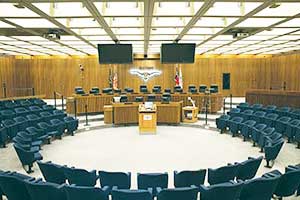
 Fort Worth city council members have unanimously passed a new ordinance aimed at short-term rental properties. The new rules are designed to make it easier for the city to cite short-term rentals operating illegally in residential areas, to give legal short-term rentals a path to registration, and to increase hotel occupancy tax revenue for the city.
Fort Worth city council members have unanimously passed a new ordinance aimed at short-term rental properties. The new rules are designed to make it easier for the city to cite short-term rentals operating illegally in residential areas, to give legal short-term rentals a path to registration, and to increase hotel occupancy tax revenue for the city.
The registration deadline for all short-term rental properties is June 1, 2023, however the new standards and requirements go into effect immediately. Property owners operating illegal short-term rentals will have 30 to 45 days to comply with the law. The city also plans to contact short-term rental property owners about the next steps they need to take for registration.
The full list of changes includes:
In Fort Worth, short-term rentals are only allowed in specific areas zoned for them (commercial or industrial areas as well as mixed-use areas that include both commercial properties and residential properties.) Short-term rentals aren’t allowed in areas zoned solely for residential use.
While it was putting together these standards and requirements, the city found just 68 short-term rentals are legally operating where they’re supposed to in Cowtown and 565 short-term rentals are currently NOT operating where they’re supposed to.
The new rules and regulations are for short-term rentals operating legally. Those not in the correct zoning areas will face different consequences for zoning violations.
Mayor Mattie Parker acknowledged the city’s position on short-term rentals could change depending on state law. She signaled that the conversation is not over, despite the newly passed ordinance.